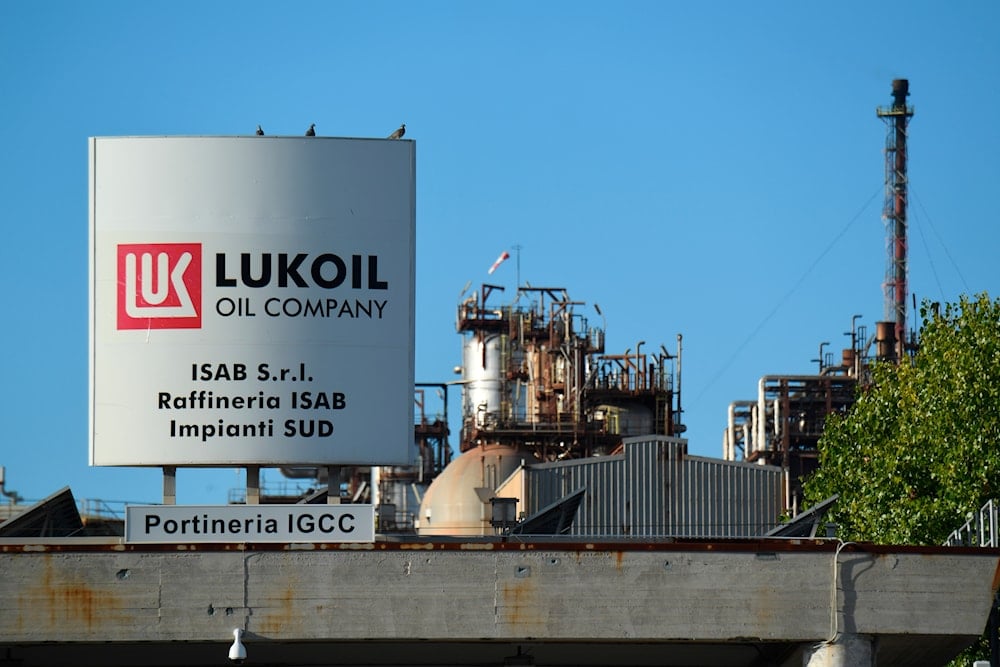Russian Lukoil plans fire sale of foreign assets due to sanctions
Russian oil giant Lukoil plans to sell its international assets after sanctions hit the company and its subsidiaries, starting talks with potential buyers.
-

Facilities of the Lukoil refinery are pictured in the Sicilian town of Priolo Gargallo, Italy, Friday, Nov. 18, 2022. (AP)
Russian oil giant Lukoil has expressed its intention to sell its foreign assets and has already begun considering offers from potential buyers on Monday, following the introduction of sanctions by several countries against it and its subsidiaries.
"Public joint-stock company Lukoil informs that due to the introduction of restrictive measures by some states against the company and its subsidiaries, the company announces its intention to sell its international assets. Consideration of applications from potential buyers has begun," the company declared in an official statement.
The statement further added that, to ensure the smooth operation of its foreign assets, Lukoil plans to request an extension of its wind-down license from the US Treasury's Office of Foreign Assets Control if it becomes necessary.
US, EU launch new sanctions on Russian energy
On October 23, the European Union officially adopted its 19th round of sanctions against Russia over the war in Ukraine, introducing new restrictions that include a ban on imports of Russian liquefied natural gas (LNG).
After Slovakia lifted its earlier objections and all 27 member states endorsed the sanctions package, which was finalized late Wednesday, the Danish rotating presidency of the EU described the decision as “a significant package that targets main Russian revenue streams through new energy, financial, and trade measures.”
Under the new measures, short-term LNG contracts will terminate within six months and long-term deals will end as of January 1, 2027, a timetable that moves up the European Commission’s original plan by one year to fully eliminate the bloc’s dependence on Russian fossil fuels.
Also on October 23, the US Department of the Treasury’s Office of Foreign Assets Control (OFAC) escalated its financial pressure campaign by sanctioning Russia's primary oil producers, Rosneft and Lukoil, with the stated objective of intensifying the economic strain on Moscow to compel an end to the conflict in Ukraine.
US Treasury Secretary Scott Bessent stated, “Now is the time to stop the killing and for an immediate ceasefire,” and explained that, “Given President Putin’s refusal to end this senseless war, Treasury is sanctioning Russia’s two largest oil companies that fund the Kremlin’s war machine.”

 2 Min Read
2 Min Read










